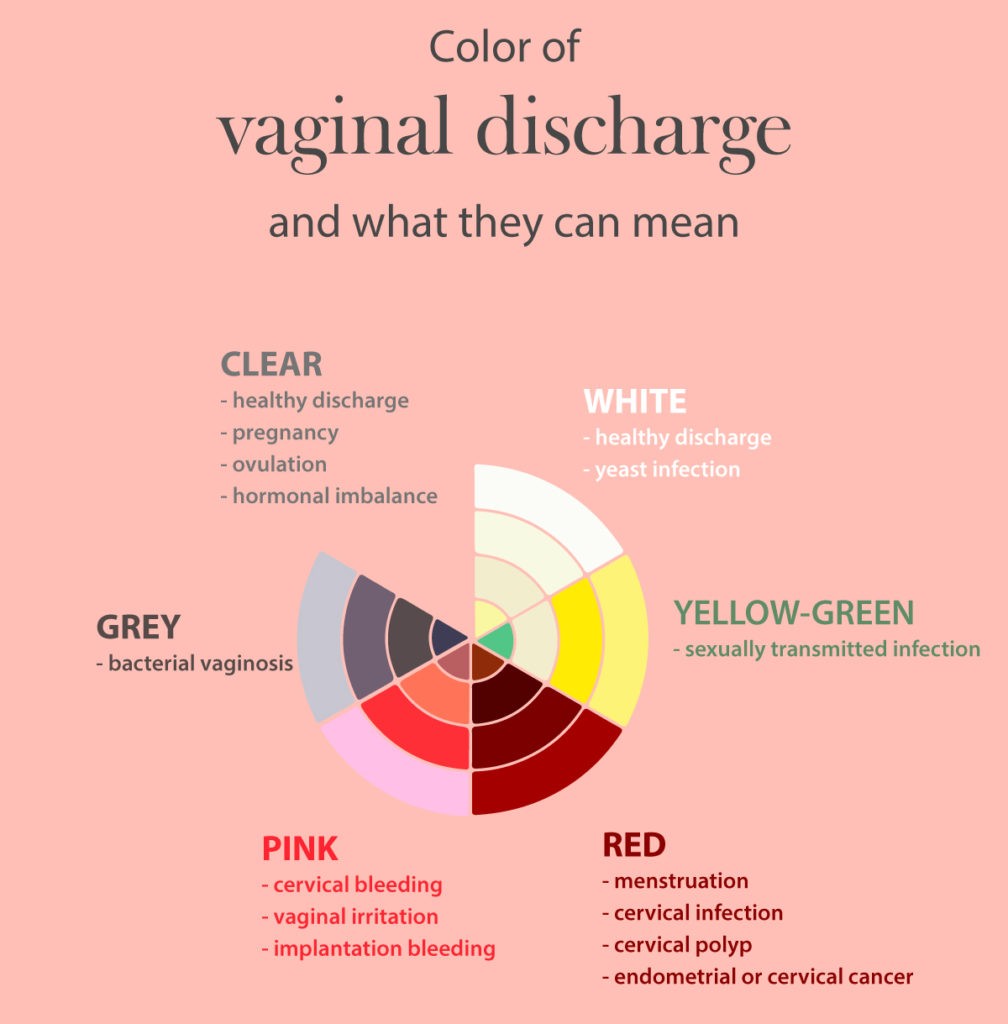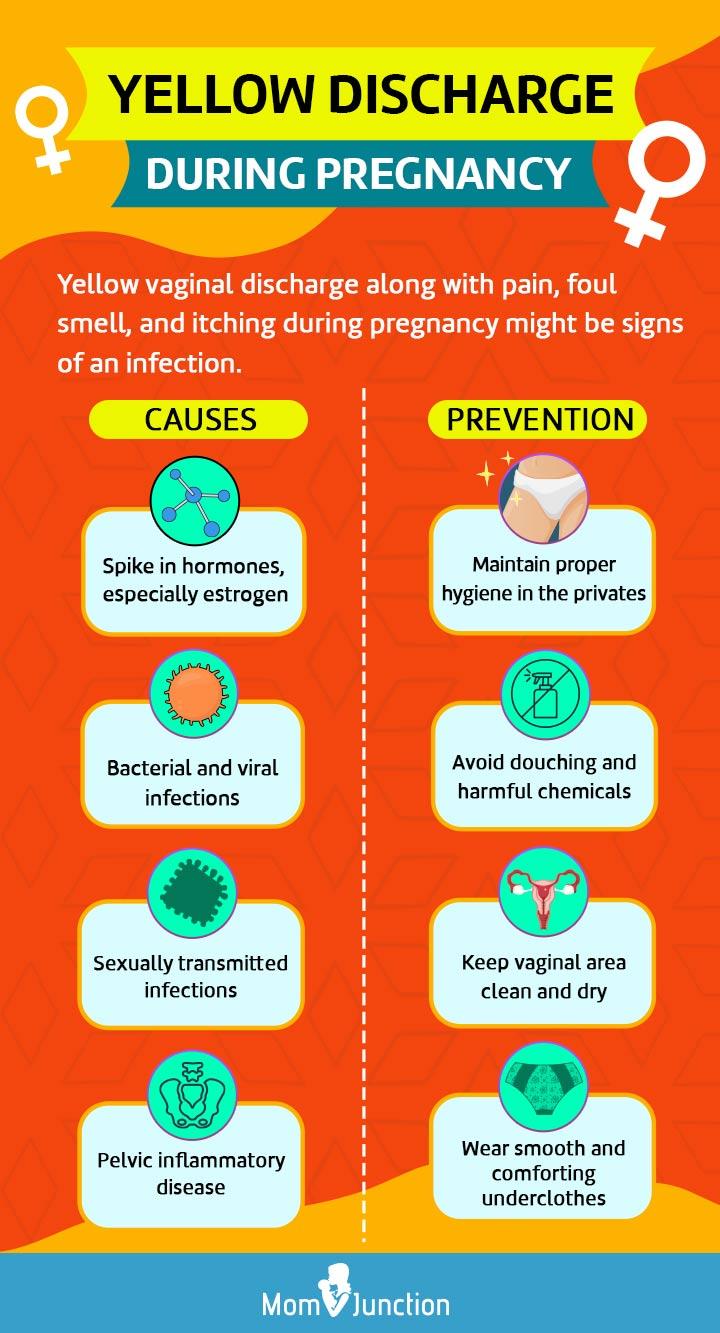Is Yellow Discharge Normal When Pregnant - Yellow discharge during pregnancy isn't always cause for concern. Yellow discharge during pregnancy can be a symptom of a yeast infection, sexually transmitted infection (sti), or bacterial vaginosis. During pregnancy, some increase in vaginal discharge, known as leukorrhea, can be expected as your hormones, oestrogen and progesterone, change. So if you notice that your discharge is yellow, it could signal that something is up. This discharge should be clear, whiteish or even cream or pale yellow. However, it can be a sign of an infection or a leak in the amniotic sac that protects a fetus in the womb. Normal pregnancy discharge tends to be clear or milky white. Yellow discharge is particularly concerning if paired. Here’s what you need to know, plus whether your symptoms warrant a call to your health care. “it typically starts in the first trimester,.
Yellow discharge during pregnancy isn't always cause for concern. Normal pregnancy discharge tends to be clear or milky white. During pregnancy, some increase in vaginal discharge, known as leukorrhea, can be expected as your hormones, oestrogen and progesterone, change. However, it can be a sign of an infection or a leak in the amniotic sac that protects a fetus in the womb. So if you notice that your discharge is yellow, it could signal that something is up. It is important to seek medical attention if you experience yellow discharge along with other. Here’s what you need to know, plus whether your symptoms warrant a call to your health care. Yellow discharge during pregnancy can be a symptom of a yeast infection, sexually transmitted infection (sti), or bacterial vaginosis. This discharge should be clear, whiteish or even cream or pale yellow. Yellow discharge is particularly concerning if paired.
It is important to seek medical attention if you experience yellow discharge along with other. “it typically starts in the first trimester,. Normal pregnancy discharge tends to be clear or milky white. During pregnancy, some increase in vaginal discharge, known as leukorrhea, can be expected as your hormones, oestrogen and progesterone, change. Here’s what you need to know, plus whether your symptoms warrant a call to your health care. So if you notice that your discharge is yellow, it could signal that something is up. This discharge should be clear, whiteish or even cream or pale yellow. Yellow discharge is particularly concerning if paired. However, it can be a sign of an infection or a leak in the amniotic sac that protects a fetus in the womb. Yellow discharge during pregnancy isn't always cause for concern.
What Does Your Discharge Reveal At 3 Weeks Pregnant?
During pregnancy, some increase in vaginal discharge, known as leukorrhea, can be expected as your hormones, oestrogen and progesterone, change. It is important to seek medical attention if you experience yellow discharge along with other. Here’s what you need to know, plus whether your symptoms warrant a call to your health care. Yellow discharge during pregnancy isn't always cause for.
Understanding Yellowish Discharge Normal Or Concerning During
During pregnancy, some increase in vaginal discharge, known as leukorrhea, can be expected as your hormones, oestrogen and progesterone, change. Normal pregnancy discharge tends to be clear or milky white. So if you notice that your discharge is yellow, it could signal that something is up. Here’s what you need to know, plus whether your symptoms warrant a call to.
Yellow Discharge During Pregnancy What’s Normal And When To Seek Help
However, it can be a sign of an infection or a leak in the amniotic sac that protects a fetus in the womb. Normal pregnancy discharge tends to be clear or milky white. It is important to seek medical attention if you experience yellow discharge along with other. During pregnancy, some increase in vaginal discharge, known as leukorrhea, can be.
Clear Discharge During Pregnancy 38 Weeks at Gertrude Covington blog
Normal pregnancy discharge tends to be clear or milky white. Yellow discharge is particularly concerning if paired. However, it can be a sign of an infection or a leak in the amniotic sac that protects a fetus in the womb. It is important to seek medical attention if you experience yellow discharge along with other. Here’s what you need to.
Understanding Yellowish Discharge in Pregnancy Is Yellow Mucus Normal
During pregnancy, some increase in vaginal discharge, known as leukorrhea, can be expected as your hormones, oestrogen and progesterone, change. This discharge should be clear, whiteish or even cream or pale yellow. Yellow discharge during pregnancy can be a symptom of a yeast infection, sexually transmitted infection (sti), or bacterial vaginosis. Normal pregnancy discharge tends to be clear or milky.
Is yellow discharge during pregnancy normal? YouTube
This discharge should be clear, whiteish or even cream or pale yellow. It is important to seek medical attention if you experience yellow discharge along with other. Yellow discharge is particularly concerning if paired. Yellow discharge during pregnancy can be a symptom of a yeast infection, sexually transmitted infection (sti), or bacterial vaginosis. Normal pregnancy discharge tends to be clear.
Yellow Discharge During Pregnancy Causes And Treatment
So if you notice that your discharge is yellow, it could signal that something is up. During pregnancy, some increase in vaginal discharge, known as leukorrhea, can be expected as your hormones, oestrogen and progesterone, change. Yellow discharge is particularly concerning if paired. This discharge should be clear, whiteish or even cream or pale yellow. Normal pregnancy discharge tends to.
Yellow Discharge During Pregnancy What to Know
So if you notice that your discharge is yellow, it could signal that something is up. Normal pregnancy discharge tends to be clear or milky white. Yellow discharge is particularly concerning if paired. During pregnancy, some increase in vaginal discharge, known as leukorrhea, can be expected as your hormones, oestrogen and progesterone, change. This discharge should be clear, whiteish or.
Understanding Bright Yellow Discharge During Pregnancy What You Need
Yellow discharge during pregnancy isn't always cause for concern. So if you notice that your discharge is yellow, it could signal that something is up. Here’s what you need to know, plus whether your symptoms warrant a call to your health care. This discharge should be clear, whiteish or even cream or pale yellow. Yellow discharge is particularly concerning if.
Yellow Discharge Pregnancy Is It Normal? Healthpulls
Yellow discharge during pregnancy isn't always cause for concern. So if you notice that your discharge is yellow, it could signal that something is up. This discharge should be clear, whiteish or even cream or pale yellow. “it typically starts in the first trimester,. Normal pregnancy discharge tends to be clear or milky white.
However, It Can Be A Sign Of An Infection Or A Leak In The Amniotic Sac That Protects A Fetus In The Womb.
“it typically starts in the first trimester,. Yellow discharge is particularly concerning if paired. During pregnancy, some increase in vaginal discharge, known as leukorrhea, can be expected as your hormones, oestrogen and progesterone, change. Normal pregnancy discharge tends to be clear or milky white.
It Is Important To Seek Medical Attention If You Experience Yellow Discharge Along With Other.
So if you notice that your discharge is yellow, it could signal that something is up. Yellow discharge during pregnancy isn't always cause for concern. This discharge should be clear, whiteish or even cream or pale yellow. Yellow discharge during pregnancy can be a symptom of a yeast infection, sexually transmitted infection (sti), or bacterial vaginosis.







:max_bytes(150000):strip_icc()/VWH_Illustration_A-Guide-to-Discharge-Color-During-Pregnancy_Illustrator_Katie-Kerpel_Final-c2f81059281e443f9f3b6bf19229a7bb.jpg)

